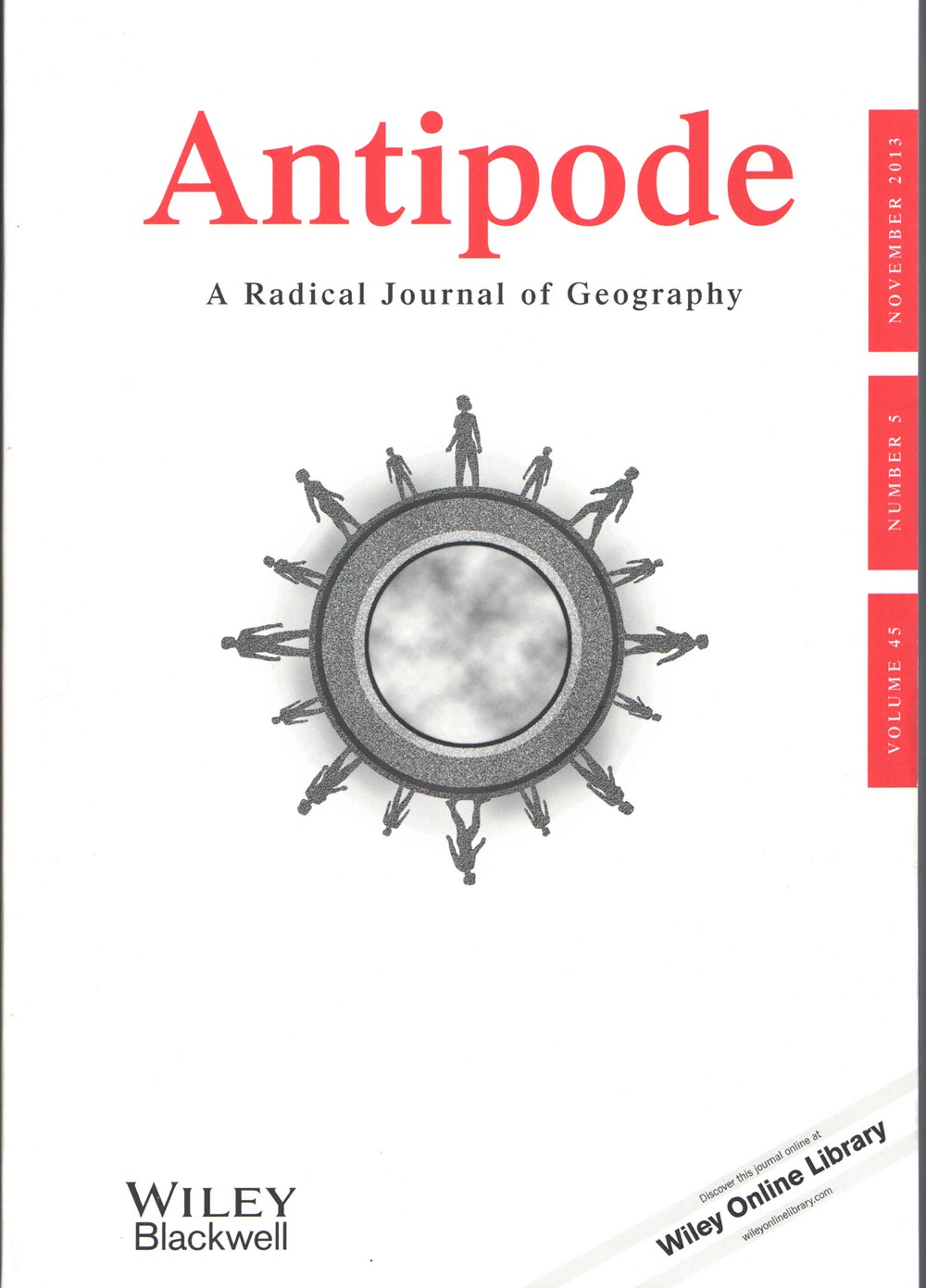Bending Possession: How Detroiters Care for Land by Remediating Settler Property
IF 3.6
1区 社会学
Q1 GEOGRAPHY
引用次数: 1
Abstract
Abstract This article examines how people reconfigure the social, legal, and material claims that settler property relations make to place. It does so through ethnographic and historical attention to small‐scale gardens in Detroit, Michigan. When present‐day Detroiters transform grassy lots into gardens and places of shared enjoyment, they frequently encounter how antiblack environmental conditions are grafted with property claims created through settler‐colonial dispossession of Indigenous lands. Gardeners document encounters with the simultaneity of settler plotlines and contaminated soils as part of efforts to secure gardens from encroachment by real estate developers. As gardeners leverage legal conventions of settler property regimes like adverse possession manoeuvres, they also refuse the sociomaterial status quo of colonial land relations. In conversation with Detroiters and their gardens, this article offers bending possession as a handle for methods people develop that begin to provisionally redirect the violence of private property that sustains colonial racial capitalism.弯曲占有:底特律人如何通过修复定居者财产来照顾土地
摘要本文考察了人们如何重新配置定居者财产关系对当地的社会、法律和物质要求。它通过对密歇根州底特律小型花园的民族志和历史关注来实现这一目标。当今天的底特律人把草坪改造成花园和共享享受的地方时,他们经常遇到反黑人的环境条件是如何与定居者-殖民地剥夺土著土地所产生的财产要求相嫁接的。园丁们记录了定居者的故事情节和被污染的土壤同时发生的情况,这是保护花园免受房地产开发商侵占的努力的一部分。当园丁们利用定居者财产制度的法律惯例,比如逆权占有策略时,他们也拒绝了殖民地土地关系的社会物质现状。在与底特律人和他们的花园的对话中,这篇文章提供了弯曲占有作为人们开发的方法的一个手柄,这些方法开始暂时重新定向维持殖民种族资本主义的私有财产暴力。
本文章由计算机程序翻译,如有差异,请以英文原文为准。
求助全文
约1分钟内获得全文
求助全文
来源期刊

Antipode
GEOGRAPHY-
CiteScore
9.50
自引率
10.00%
发文量
111
期刊介绍:
Antipode has published dissenting scholarship that explores and utilizes key geographical ideas like space, scale, place, borders and landscape. It aims to challenge dominant and orthodox views of the world through debate, scholarship and politically-committed research, creating new spaces and envisioning new futures. Antipode welcomes the infusion of new ideas and the shaking up of old positions, without being committed to just one view of radical analysis or politics.
 求助内容:
求助内容: 应助结果提醒方式:
应助结果提醒方式:


